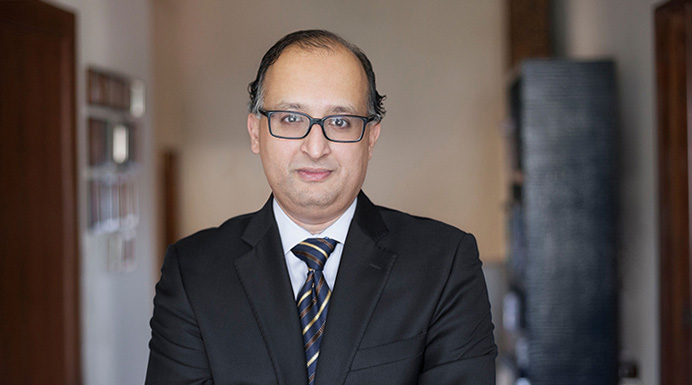Sujit Choudhry has a deep background in the field of law. Besides teaching at the University of California and New York University, he is known as an expert of constitutional law and political subjects. He has been an adviser to the constitution building process for countries across the world and was a law clerk to the Chief Justice the Supreme Court of Canada.
Choudhry views constitutional design as a means to deal with the transition from violence to peaceful coexistence. He has published numerous articles and reports on topics, including ways to bring together divided societies and similar subjects.
Sujit Choudhry founded the Center for Constitutional Transitions, which leads research projects that support constitution building. It has a global network of partners throughout universities and international organizations. Currently, he is on the United Nations Mediation Roster and worked as a consultant for the World Bank Institute. Learning how he answers a few questions gives better insight into his career choices.
Where did the idea for your organization come from?
I have vast experience in constitutional advising. Through my everyday work, questions always arose. Since there was not always enough evidence to answer these questions, I felt that there was a need to establish a place where people could turn to for knowledge and support. The Center for Constitutional Transitions generates information that supports the building of constitutions. It consists of a network of experts who produce “evidence-based” policy solutions. This up-to-date research aids the effectiveness of those who are providing constitutional advice.
What does your typical day look like? How do you make it productive?
My field is quite active. New constitutions are always being drafted across the globe. Each day, I start by reviewing my online sources so that I remain knowledgeable about any changes that have been made. Now, I am working on research projects with partners all over the world. To be effective, we must coordinate our ideas and drive other institutions. I try to remain productive by mixing my day with research and writing.
How do you bring ideas to life?
Since true-to-life examples are the backbone of my success, we concentrate on pinpointing issues that are relevant to a number of countries. However, knowledge on these issues is often old or incomplete. This is where our target audience comes into play. At each point of our research, we connect with our policy partners and make our outputs available. To bring everything to life, we use examples from around the globe.
What is one trend that really excites you?
The expanding world of big data is a continuing trend that is very exciting. Having a way to collect and share constitutional information at scale online is a great thing.
What is one habit that makes you more productive as a leader?
Staying one step ahead. If you become a strong and insightful leader, you will always have people who want to work with you.
If you were to start again, what would you do differently?
In the beginning, I concentrated on the study of the Canadian legal system. If I were to start over, I would have had a more global focus.
What is one strategy that has helped you to grow your organization? Explain.
I am an immigrant who has law degrees from three countries, so I have experienced different constitutional systems. That has played a key role in my success. Also, I have always tried to be flexible and entrepreneurial. I try to take advantage of all opportunities as well.
What is one failure that you had as an entrepreneur. How did you overcome it?
At one time, I took an entire year and attempted to build a relationship that potentially offered a great deal of resources on a global scale. Unfortunately, it failed. Afterward, we reconfigured our ideas and established a less expensive and improved model that has been successful.
What are some challenges and rewards from working globally with people of different cultures?
I find that it is imperative to listen to people on the ground. They know what is needed. This helps to become a vital part of a new place and see things from their viewpoints. Since it may be different from how Americans see something, it is important to never assume anything.
How has you vision and approach changed over time?
In the past, I felt that I needed to have projects unfold in a certain manner. When they didn’t, I became disappointed. With time, I have uncovered that each problem provides a chance to start over and create something better.
What is one book that you recommend to our community and why?
The book “Wiser: Getting Beyond Groupthink to Make the Group Smarter” is a good read for an individual who is challenged by heading a large group and who must make decisions.

